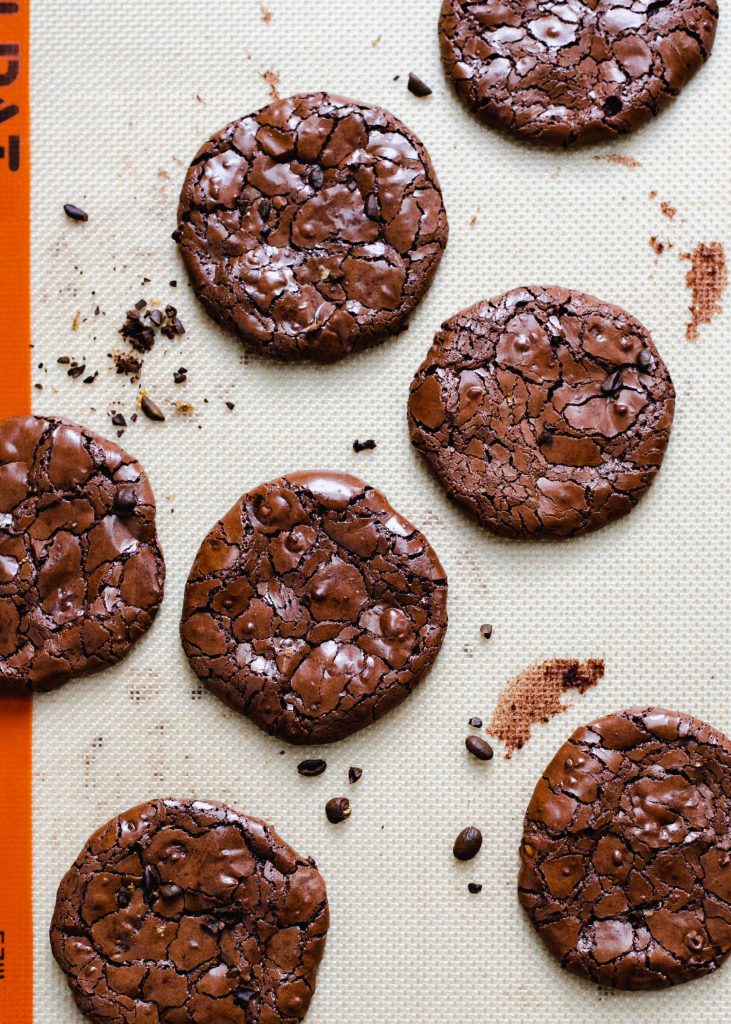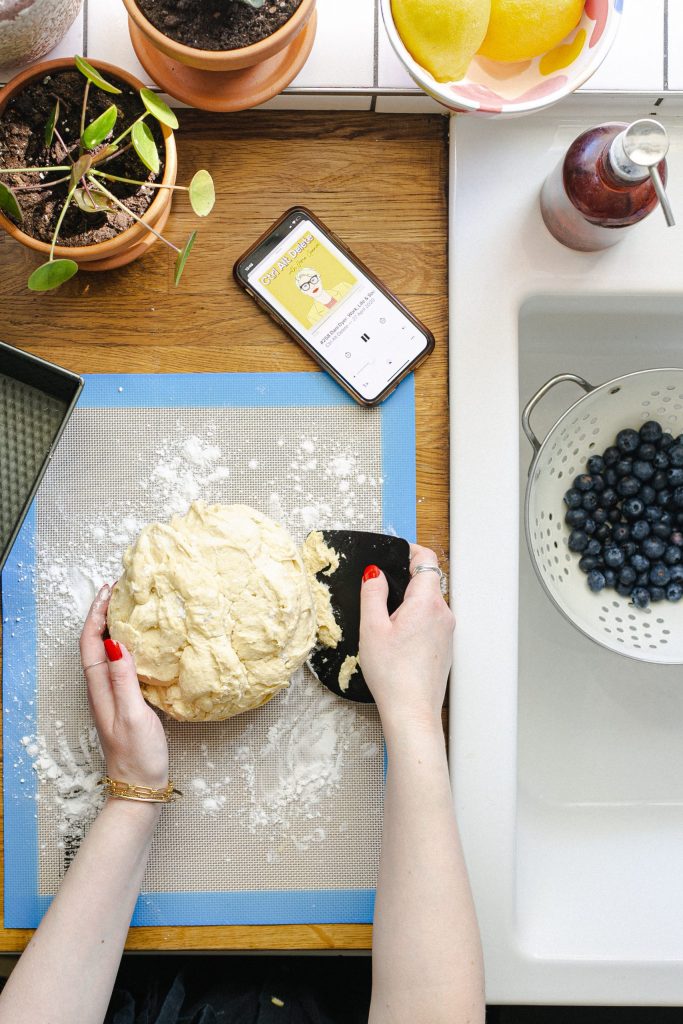
A few weeks back I was lucky enough to be joined by Dr Rabia on Instagram Live. Dr Rabia is a gut doctor, yoga teacher; hypnotherapist and you might have seen her recently on your screens on Channel 4’s Know Your S**t: Inside Our Guts. Her mission is to empower us with mind-body tools for digestive health and I for one am here for that! We spoke about gut health, yoga, breathwork and finding balance to achieve a happy and healthy gut. You can watch our interview HERE (along with us making a delicious low FODMAP hot smoked salmon salad from my ebook, Spring).
As much as this blog is a recipe site, and as much as I always want to talk food, this space might not be here had I not been diagnosed with IBS over 15 years ago. It’s easy to forget just how food, mood and our bodies are linked when it comes to gut health and IBS and it was a total joy to speak to Dr Rabia to get that reminder. You can find a few key points from our chat below.
You have been so brilliant on Know Your S**t: Inside Our Guts, was there anything that surprised you filming the series?
The series was full of surprises! Filming in the first week, what stood out for me most was that the patients (contributors) had had so many tests done before coming on the show. They had all seen their GP and often a Gastroenterologist, but they were still left with symptoms which they felt were unexplained. We underestimate the value of basic education and simple lifestyle advice for gut symptoms – and that is exactly what the show provided. Most of the patients were happy not to have further tests done, they just wanted to feel seen, heard and understood.
If there are three takeaways you’d like people to have from the series, what would they be?
Firstly, shed the poo taboo! Your gut is a fascinating organ and we digest everything, from the food we eat, to the words we hear, to the way we sleep. Secondly, I would love for people to feel empowered to make simple lifestyle changes and really notice a difference. For example, use a toileting stool to adapt the way you sit on the toilet and notice how emptying your bowels feels different. Lastly, up your intake of plant based foods – make your veggies diverse, colourful and fresh – this is the best way to increase your fibre intake and protect against bowel disease in the long term.
You graduated with both a medical degree and a degree in medical ethics law – incredibly impressive – you then qualified as a Vinyasa flow Yoga teacher in 2018 and went on to obtain a diploma in Cognitive Behavioural Hypnotherapy! At what point did you start to believe that the power of health went beyond just the medical?
Having practiced yoga for many years before I qualified as a teacher, my mind was open and receptive to the idea that our body and mind are not separate entities. Whereas modern medical practice has siloed them, ever since the time of Rene Descartes. But the light bulb moment for me came during my medical training, seeing patient after patient in my Gastroenterology clinic, all of whom had normal test results and yet they still felt unwell. Surely there had to be solutions beyond what we were offering? Indeed – there are.

As somebody who has struggled with their gut for a long time and who has been in the gut-health-food space for a while, something that I found and have heard from others is being given a diagnosis, such as IBS, but then little information on where to begin. Or unfortunately a lack of resources to help at that moment in time. What I love so much about what you do is the accessibility factor. You publish breathwork courses, offer online classes, are spreading information on Instagram, among other things! What is the driving factor behind making the content that you do?
It is exactly as you say. Like you, I have suffered from gut symptoms myself and I also look after patients with a diverse range of gut disorders from cancer to inflammatory bowel disease, and total gut failure. The challenge of resource provision is high demands on our National Healthcare Service (NHS) – which is in part driven by our inability at an individual level to both prevent and treat “dis-ease” in our own bodies. The driving factor behind my work is two-fold: to raise awareness about the gut-brain connection and to empower people to take charge of their own gut health by having mind-body tools they can use every day.
You run online yoga classes and we know that studies have shown that yoga can be just as impactful as the low FODMAP diet when it comes to IBS – in what ways can yoga help our gut? And is there anything that you’d recommend for people who might be scared to start?
Our gut and nervous system are connected. When we feel stressed, our nervous system is activated and this can contribute to gut symptoms. Yoga is a movement practice that calms our nervous system. In particular for Irritable Bowel Syndrome (IBS), yoga can be considered a form of gut-brain therapy. My online classes essentially offer this in an easily accessible way. If you have never done yoga before, remember – you do not need to be flexible, wear colourful leggings or be able to touch your toes!
To make a start, you can watch my online video and follow along at your own pace. You can also find more information about my classes here.
Please could you give us a little intro into breathwork and gut health and some advice for those of us who are beginners?
Breathwork is when you work with your natural breathing to bring about a change in your physical or mental state. For example, there are breathwork techniques to calm or release tension and there are breathwork techniques to energise or alleviate fatigue. For beginners, start by noticing the impact of a deep sigh – you can do this right now – take a deep inhale, pause at the top… exhale out through the mouth. Simply bringing awareness to your breath in this way, is like pressing the reset button on your nervous system. It creates a conscious shift to slow down and check in. Here’s a breathwork video to calm and release tension.
If there were three things you’d like people to take away from this conversation and your way of thinking and way of working in the gut-health space, what would they be?
Our shared message is simple. You can live with IBS and not have to feel restricted, despite altering your lifestyle to manage your symptoms. Life is about balance, it is also about being responsive to your body – rather than reactive. And finally, food and mood are linked as the key players in IBS, so I recommend using breathwork techniques alongside your beautiful recipes for a happy and healthy gut.






